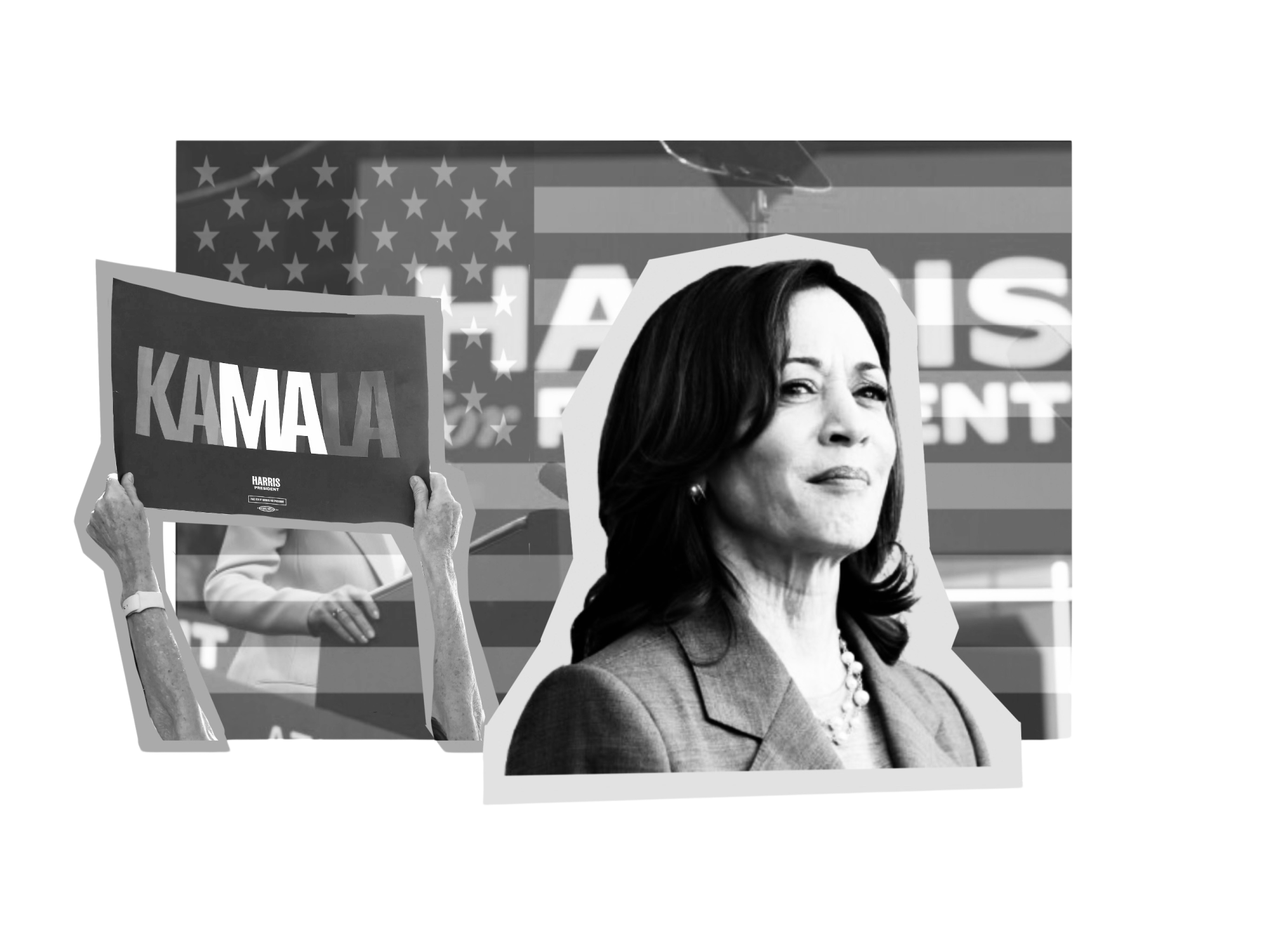
The news spread quickly on July 21, 2024, through camps, long and tedious SAT tutoring sessions, and beautifully distracting beach trips alike. President Joe Biden had withdrawn from the presidential race. Both fear and relief spread across the spectrum of political America. Suddenly, rather than an 81-year-old president with a notably “shaky debate performance,” there was a gaping hole within the Democratic faction. Fortunately, the missing piece was soon found.
Vice President Kamala Harris’ experience is extensive. After graduating from Howard University in 1986, Harris attended the University of California Law San Francisco, becoming a California district attorney and being sworn in as Attorney General in 2011. Within such a title, the “daughter of California,” to quote biographer Dan Morain, broke boundaries. She became not only the first female California Attorney General, but also the first African American and South Asian Attorney General. And that’s not even including her time as a United States Senator.
However, many Republicans were hesitant to accept Harris as the democratic nominee. After all, the Vice President did not get elected in any primaries. But as ABC News writer Kaleigh Rogers explains, “It’s not as if voters chose Biden over Harris in a primary election this year (as they did in 2020). If that were the case, it would be a lot dicier for delegates to turn around and vote for a candidate voters had rejected. Instead, Biden was unopposed by a serious candidate in the primary, so for delegates to back Harris now arguably wouldn’t violate the rules.” Besides, as Biden’s vice president, Harris had always been positioned as Biden’s natural successor. Furthermore, Harris has received 4,567, or 99 percent, votes out of all attending delegates of the Democratic National Convention present at its virtual roll and raised 540 million dollars within a month of her campaign launch—a hugely significant amount within the context of campaign fundraising.
Harris has also been, to state the obvious, the Vice President for nearly four years under Biden—a fact that has stirred voters since the announcement of her campaign. If Biden is leaving, many question, why we would vote for someone who shares his viewpoints? And while it may be true that many of the pair’s political stances are complementary, fundamental differences provide the distinction between a three-point trail and a five-point lead against opposing nominee and former President Donald Trump.
Primarily, Harris is more forthcoming and aggressive on the policies she stands for—specifically abortion and economics. She speaks firmly and heavily on these issues. With this humanization of people across the country, Harris brings to light the nuance of the matter. Not only are her homeland policies steadily backed up, but her foreign policiesnearly balanced within her own background and sympathies—assuage the fears of many across the numerous factions of our country, which has not been the case with Biden.
The key deviation, however, has not been the variety of issues that voters ruminate over. Isaac Boltansky, director of policy research at BTIG, a global financial firm argues, “A Harris presidency would be, for all intents and purposes, a continuation of the Biden administration. From a Democratic perspective, I think that’s a feature, not a bug. We need to keep in mind Biden is slowly being led towards the door not because of his policies but because of his health and capacity.” Political viewers must not underestimate the effect of the June 27 debate between President Biden and former President Trump on voters. According to a CBS News Poll, post-debate statistics displayed “a ten-percentage-point jump in the proportion of registered voters who say President Biden should not be running for reelection from 63 percent in February to 72 percent on Friday and Saturday.” Many feel that despite his experience and reasonable policies, Biden is not mentally capable enough for a second term of presidency—an issue that Harris does not perpetuate. Not only is she fifty-nine years old—a gap of nineteen years between her and Trump—but the September 10 debate against Trump displays that she is sharp as a tack. In fact, in contrast to the decrease in support for Biden after his performance, Harris’ voter confidence increased by six percent, and 63 percent of watchers surveyed believed that she outperformed Trump.
Despite Harris’ decades of relevant experience and her comparably distinguished debate skills, she has been known across the internet for her raucous laughter. Displayed prominently, the cacophonous cackles by Harris have been construed by Republicans and Trump himself to discredit her. “Have you heard her laugh?” Trump asks his followers at a rally in Wilkes-Barre, Pennsylvania, “She has the laugh of a lunatic.” In the past, Trump has come up with names for his opponents such as “Sloppy Steve,” “Slow Joe,” “Low Energy Jeb,” “Ron Desanctimonious”—the list would and has filled pages and pages. But in an era with a past President and current nominee infamous for his vitriol and mocking, the joyous laughter of Harris seems to be just what the country needs. As Harris herself noted in a recent television interview, she is distinguishable because she “offer[s] a new generation of leadership”—a generation filled with a positive mindset and outcome.





